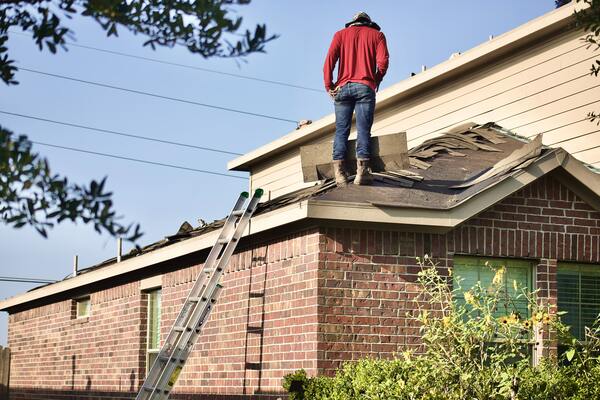Contents
Sometimes, a homeowner or property manager may need to sue a contractor for an unsatisfactory job. Many factors can contribute to defining a job as deficient. Some of the most common issues which may arise are a breach of contract, defective construction, failure to correct a problem, and others. In instances like these, the homeowner or property manager should know the possible measures they can take. A frequent solution requires a legal professional to assist in handling the lawsuit. This article briefly summarizes the legal process of suing a contractor, the grounds for suing, and the possible outcomes of a case.
Grounds for Suing a Contractor
Pursuing a construction lawsuit begins with the homeowner or property manager catching a defect in the construction process. First, the property owner must demonstrate that the contractor somehow breached the conditions of the contract. The following are some of the common breaches that compel property owners to pursue a lawsuit:
- The contractor performs an unsatisfactory job upon completion
- The contractor violates specific safety standards. Violations may include compromising structural integrity, leading to a burst pipe or a weak roof.
- The contractor accepts a deposit from the property owner but fails to complete the designated tasks.
- The contractor overcharges the property owner.
- There are inexcusable delays in the contractor’s work process.
Deciding to Sue
First, the property owner should know if the agreed-upon work requires a license. According to California’s Business and Professions Code 7048 (B&P 7048), the Contractor State License Law takes effect only if the involved parties meet the following criteria:
- The contractor is doing physical work which alters a structure and becomes a part of the real estate property. This work does not include projects considered casual or inconsequential in nature.
- The contract price must be $500 or higher. However, this limit does not apply if the operation is divided into several smaller payments, each being less than $500
- The $500 limit also does not apply if the person self-advertises as a contractor, falsely indicating that they are qualified.
Suing an Unlicensed Contractor
If the property owner is confident that they meet the above conditions and the job does require a license, they can then find out whether or not the contractor has a valid license. The property owner can utilize the Contractors State License Board’s (CSLB) website. According to B&P 7028, performing a contractor’s business without a valid license is a misdemeanor. Should it turn out that the contractor is unlicensed, they can be sued and required to compensate all the money paid for their work. An unlicensed contractor, however, is ineligible to sue a property owner for any compensation, even if the employer did not pay them. In addition, a first-time violation of B&P 7028 is punishable by up to 6 months in jail and up to $5000 in fines.
The property owner can also take legal action against an unlicensed contractor by filing a small claims court action. An individual can file a claim for up to $7500, and a business or corporation can file for up to $5000. It is advisable to find a lawyer for this step to handle the legal process.
Suing a Licensed Contractor
If the property owner finds that the contractor is appropriately licensed, they can officially begin a complaint process. First, they must file a complaint with the CSLB. The mailing address and other modes of contact are here. CSLB prioritizes complaints based on the order of receipt, the seriousness of the claim, and the number of resources available at the time. Once CSLB reviews the complaint, they will notify the homeowner. Another message is sent to the contractor, encouraging them to settle issues without CSLB intervention.
Should the complaint remain unresolved, CSLB may ask for additional information and documentation from the property owner. CSLB will continue to keep in contact with the contractor to pursue mediation before a lawsuit they or the homeowner files a lawsuit. If CSLB, the contractor, and the complainant cannot reach an agreement, then CSLB may advise the property owner to pursue compensation through a small claims court. However, this only applies if the contractor does not have a history of repeated offenses and the damages amount to less than $10,000. CSLB can suspend a contractor’s license if they fail to comply with the bond payout.
If the severity complaint exceeds the jurisdictional duties of a small claims court, then the case will be assigned to one of CSLB’s investigative centers. The purpose of this investigation is to determine whether there is clear and sufficient evidence to demonstrate a violation of the contract. This step may include interviews with the property owner, the contractor, and third parties who can offer relevant insight into the situation.
Claim Arbitration with CSLB
CLSB staff then determines whether the case goes to arbitration. If it proceeds to arbitration, CSLB offers two solution paths including:
- Mandatory arbitration program for alleged damages less than $15,000
- Voluntary arbitration program for suspected damages exceeding $15,000 but less than $50,000
In addition, sufficient legal evidence against the contractor can result in a suspension or revocation of their license. Additional penalties, such as fines of up to $5000, orders of correction, or mandatory repairs, may also be imposed. Furthermore, the state Office of the Attorney General will represent CSLB in court to settle the dispute if a party files a lawsuit.
Contact Pride Legal
If you or a loved one are considering suing a contractor for a poor job in California, we invite you to contact us at Pride Legal for legal counseling or any further questions. To protect your rights, hire someone who understands them.

